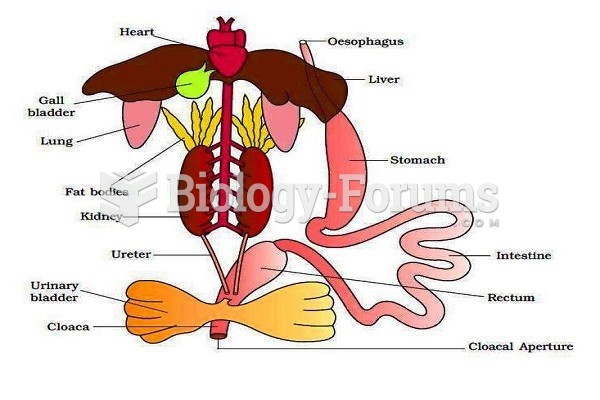This topic contains a solution. Click here to go to the answer
|
|
|
Did you know?
The first war in which wide-scale use of anesthetics occurred was the Civil War, and 80% of all wounds were in the extremities.
Did you know?
There are more nerve cells in one human brain than there are stars in the Milky Way.
Did you know?
Green tea is able to stop the scent of garlic or onion from causing bad breath.
Did you know?
All adverse reactions are commonly charted in red ink in the patient's record and usually are noted on the front of the chart. Failure to follow correct documentation procedures may result in malpractice lawsuits.
Did you know?
The calories found in one piece of cherry cheesecake could light a 60-watt light bulb for 1.5 hours.







